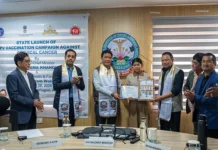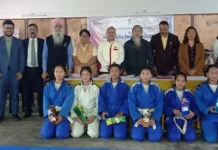[ Badak Yomgam ]
India’s border regions, particularly Arunachal Pradesh in recent times, are strategically important areas where China has made territorial assertions. The Vibrant Villages Programme-II (VVP-II) addresses this critical challenge through a comprehensive strategy that prominently features the development of rural tourism.
Rural tourism within VVP-II strengthens India’s position with a sense of urgency in the following ways:
Reinforcing national identity: By showcasing the unique cultural heritage, traditions and lifestyle of Arunachal’s border communities, rural tourism promotes a strong and visible sense of Indian identity. This is urgently needed to counter any narratives that attempt to portray the region as separate or distinct from India, which can fuel territorial claims.
Establishing presence: Developing robust tourism infrastructure and actively encouraging visitors establishes a tangible and sustained Indian presence in these sensitive areas. This is not just about marking territory; it’s about demonstrating that these regions are integral parts of Indian citizens and others. The urgency lies in making this presence undeniable.
Empowering local communities: Rural tourism generates vital income and employment opportunities for local residents. This economic empowerment is urgently needed to strengthen their stake in remaining in their villages and contributes to the region’s overall stability. Prosperous and self-reliant communities are more resilient and better equipped to resist external pressures, and this resilience is a crucial defence. Promoting understanding: Tourism fosters essential interactions between people from different parts of India, promoting greater understanding and national integration. This increased connection urgently strengthens the bond between border communities and the rest of the nation, building a unified front.
In essence, VVP-II’s focus on rural tourism is not simply a matter of economic development; it’s a strategic imperative to assert India’s sovereignty, strengthen national unity and counter Chinese claims in the border regions with a necessary sense of urgency. (The contributor is a PhD scholar at NEHU, Shillong)




